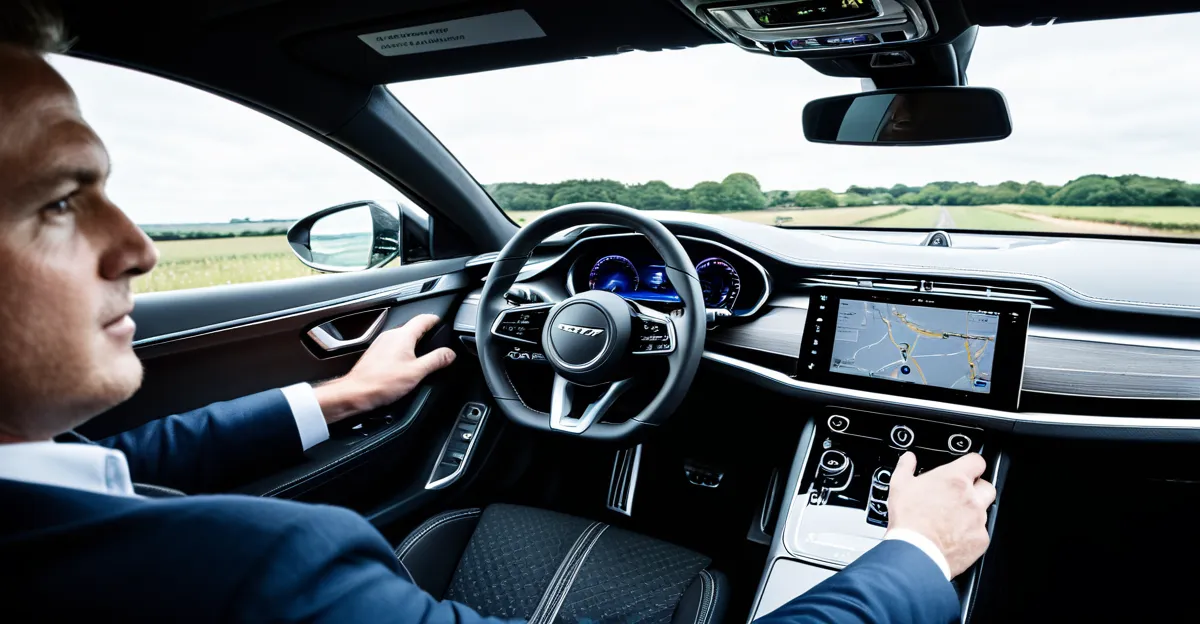Key Emerging Technologies Shaping the Future of UK Automotive
The future automotive technologies UK landscape is rapidly evolving, driven by innovations in electric vehicles, autonomous systems, connected cars, and AI integration. The UK automotive industry focuses strongly on these advances to remain competitive and sustainable.
Electric vehicles (EVs) are a cornerstone of the innovations in UK automotive industry, backed by government policies encouraging EV adoption and development of extensive charging infrastructure. Autonomous vehicles are undergoing active trials in the UK, with regulatory frameworks progressing to support safe deployment, reflecting a tailored approach to urban and rural settings.
This might interest you : How are UK automotive companies addressing cybersecurity concerns in vehicles?
Connected cars, integrated with smart transportation technologies, promise enhanced safety and user experience. Their deployment depends on reliable communication infrastructure, already gaining momentum in UK cities. The incorporation of artificial intelligence into vehicle systems offers smarter navigation, personalised user interfaces, and advanced safety features, setting UK smart manufacturing apart.
These technologies cater particularly to the UK market by addressing local environmental goals and urban mobility challenges. The trajectory of innovation points to a phased transformation where these critical technologies will converge, reshaping the UK’s automotive ecosystem into a more efficient, sustainable, and intelligent sector.
Also to discover : How is the UK automotive industry addressing the demand for electric vehicles?
The Rise and Impact of Electric Vehicles
Electric vehicles UK are at the forefront of innovations in UK automotive industry, propelled by growing EV adoption and the urgent need for zero-emission cars. Current adoption rates in the UK reflect a robust upward trend, supported by government incentives like grants and tax breaks that make EV ownership increasingly accessible.
Significant investments in charging infrastructure complement this growth. The expansion of fast and ultra-fast charging networks across urban and rural areas addresses range anxiety, facilitating greater EV use. These infrastructure developments are crucial, as they directly influence consumer confidence and adoption speed.
The environmental implications are substantial. Transitioning to electric vehicles UK reduces greenhouse gas emissions, aligning with the UK’s ambitious carbon-neutral targets. Market dynamics also shift, with manufacturers accelerating EV production to meet regulatory demands and consumer preferences.
In summary, the rise of electric vehicles UK represents both an environmental imperative and a critical market evolution. The combined effect of policy, infrastructure, and technology innovation strongly supports continued EV adoption, securing their place in the future automotive technologies UK landscape.
Autonomous Driving and Connected Cars in the UK Context
The autonomous vehicles UK sector is progressing steadily, with several trials underway to test self-driving systems in diverse environments. UK regulators are actively shaping frameworks that prioritise safety while fostering innovation in autonomous driving technologies. These efforts aim to balance public acceptance with technical reliability, addressing local road conditions and traffic patterns unique to the UK.
UK connected cars leverage advanced communication technologies to enhance road safety and traffic flow. Infrastructure development focuses on vehicle-to-everything (V2X) communication, enabling cars to interact with surrounding infrastructure and other vehicles. This connectivity supports features such as real-time hazard warnings and optimised route planning, improving both driver experience and urban mobility.
Despite this progress, large-scale deployment faces challenges including cybersecurity concerns, data privacy issues, and the need for consistent nationwide network coverage. Industry forecasts suggest gradual rollout aligned with regulatory milestones. Together, autonomous vehicles UK and UK connected cars represent critical pillars of the UK’s vision for smart transportation, promising safer, more efficient roads through integrated technology and well-designed policy.





